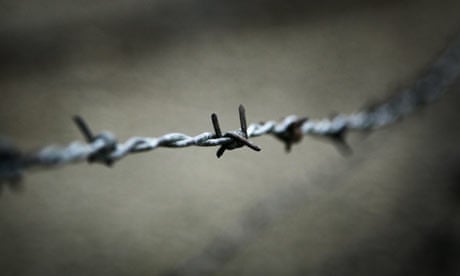In the fight for reform of America's grim, overcrowded and gang-ridden prison system it is a small victory. But so rare that it deserves mention. A new study by the Pew Centre revealed last week that America's state prisons have actually reduced their total number of inmates. The tiny dip – by just 0.4% – marks a reverse in one of the most stubborn trends in American society: the booming of its prison population. In fact it was the first recorded drop in the number of prisoners held at state jails since 1972. The numbers, of course, are staggering. The survey showed that America's creaking state jails are still home to 1,403,091 people. Back in 1972 there were just 174,000 prisoners. But what followed for almost four decades was a relentless toughening of sentencing guidelines in many states, giving the US the world's highest incarceration rate.
What is it that has finally stopped the onward charge to lock up as many people as possible for as long as possible? Sadly for reformers, it is not much to do with their campaigns to have America's laws changed on moral, humanitarian or, indeed, effectiveness grounds. It is instead mainly economic: the recession has simply meant that many states can no longer afford to lock up so many people. In cash-strapped Michigan, for example, the prison population has been slashed by 6,000 in three years as prisoners are released for serving their minimum sentence and parole violation rules are loosened.
However, the influence of the private firms who sometimes run prisons, giving them a financial incentive to lobby for tougher sentencing laws, is still strong. And the American press is full of stories of people given huge sentences for minor violations, especially when falling foul of "three strikes" laws. Earlier this month a California man who stole a $3.99 piece of cheese got nearly eight years' jail time for the offence. Prosecutors had originally argued for a life sentence for the repeat offender. The fact that this sort of thing still goes on (and elicits little meaningful outrage) throws the decline's significance into sharp relief. So, too, does the fact that at the federal level the number of prisoners is still increasing, up by 6,838 to an all-time high of 208,118. Indeed when the two populations are added together there are still more prisoners in American jails this year than last year. A small victory indeed.
